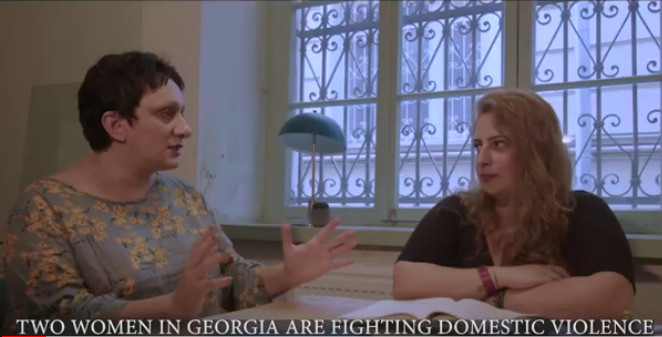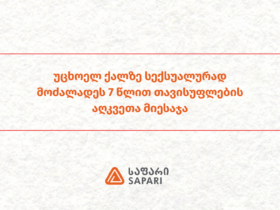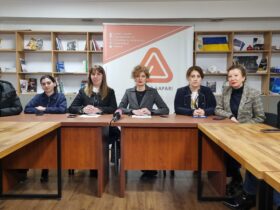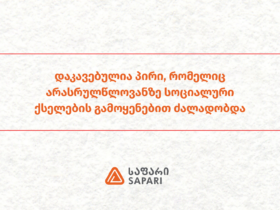“I kept a little garden in front of our family home that was so nice; people would come by just to see it”, remembers “Bella” wistfully. Like countless women in Georgia, she was pressured by her family to leave her childhood home at a young age so that her brother could inherit. When she found herself in need of refuge from an abusive relationship, she says her family told her she could not return home and that she had no rights to the property.
Although progressive legislation in Georgia guarantees the equal entitlement of women to inherit a share of their parents’ property, in practice, patriarchal social norms dictate that everything be left to the sons, while daughters should leave home when they marry. While attitudes are changing, more than half of respondents in Georgia said all or most of the rights to the family home should be endowed to a son, according to a 2013 UN survey.
Advocates for victims of domestic violence say widespread gender based inheritance discrimination contributes to the problem of domestic violence in Georgia by cutting off an avenue of escape, as well as potential financial independence, for women experiencing abuse.
“Women usually return to abusive relationships because they have nowhere else to go”, said Shorena Gabunia, a rights activist working with Sapari, an organisation that operates shelters and provides counselling for domestic violence victims. “At this point, the abuser understands that even if he is violent, the wife will always come back”.
In order to raise awareness about the links between inheritance discrimination and domestic violence, Shorena joined forces with Gvantsa Kordzakhia, editor of Naambobi, a women’s rights information portal, to create the campaign “I’m An Heiress Too”. Since launching on Facebook in March 2021, the campaign page has gained over 13,000 followers and become a platform for thousands of Georgian women, including Bella, to share their experience with inheritance discrimination—a painful rejection by family that often propels a cycle of domestic abuse.
“Women had stories but nowhere to share them”, said Gvantsa.


The campaign attracted nationwide attention almost immediately, and has been featured in most major media in the country, spurring a national discussion on a practice that has caused untold suffering rarely voiced before.
To develop their campaign, Gvantsa and Shorena attended the Prague Civil Society Centre’s workshop for anti-domestic violence campaigning. Workshop participants focused on the power of personal narrative in anti-domestic violence campaigns. They worked with highly qualified designers, illustrators and animators who helped them fine tune a creative concept and visual packaging for their campaigns.
Gvantsa explains that each story submitted to the “I’m An Heiress Too” campaign and published on the Facebook page is accompanied by a still life photo of everyday objects, often domestic scenes, with a sombre filter and lines from the woman’s story framing two sides of the image.
“For me it gives the feeling that the woman is imprisoned in some frames by society and her family, but as her story is revealed little by little, society begins to change and the frame is left open on the other two sides…a way out”, said Gvantsa.

Georgian celebrities, public intellectuals, and other well-known personalities (many of them men) have supported the campaign with video messages calling for an end to inheritance discrimination. The Facebook page is also a place for success stories from women who have regained access to family property through legal action.
One of those success stories is Bella’s.
“I want to return home and plant new flowers. I want to do my own thing and not live like a refugee”, she said.
Beyond being a space for women to speak out about injustice and abuse, the campaign has become an incitement to change attitudes towards women in Georgian society more broadly.
“This kind of thing shouldn’t happen in this country”, wrote one commenter. “Hopefully the day will come when a girl will be considered a child and she will be given both property and warmth”.
–Emily Thompson






